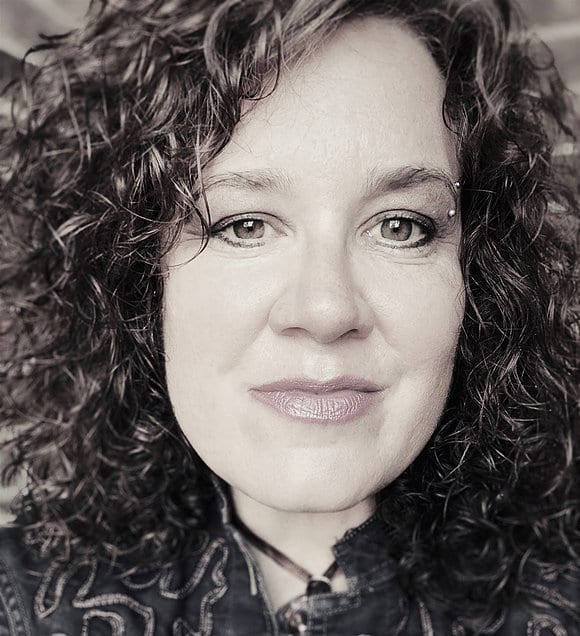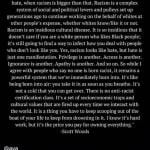As the Minneapolis City Council Vice President Andrea Jenkins, stated… racism [is] a public health emergency. Mental health research corroborates this. As a white-privileged led church… we can no longer pretend racism doesn’t exist. Nor can we pretend we don’t have a role in the ongoing racism that pervades our culture. I hope to see our white church leaders to take much stronger stances in renouncing our racist history. I hope to see our white church leaders to apologize directly and repeatedly for the racist doctrines we have incorrectly espoused and justified by no less than God himself. I hope to see our white church leaders to strike the current racist language in our scripture and manuals. I hope to see our white church leaders to be innovative and revolutionary leaders in this fight to end racism… not to lag behind.
May we, the white members of the church that directly carries Christ’s name, actively take a role in healing the wounds of people of color both within and out of our communities.
This guest post is being shared with the author’s permission. It has been written by Sam Newton. Opinions shared on this post may or may not completely reflect the positions of The Mormon Therapist Blog and Natasha Helfer Parker.
—
I am a white man. My experiences with the police were mostly positive. I did not experience racism growing up in the sense that I was not its target. But I heard white people share racist jokes among each other. I heard white people talk about why it was important to marry within your race. I heard white people talk down about minorities. And I did not realize how powerful that racist subcurrent was because I was not on its receiving end.
Then I became a public defender. I defended minorities accused of crimes. Suddenly, I became associated with those the American establishment hates. I will say that many of my clients were guilty and deserved to be there and many of the criminal justice system’s actors were well-meaning. But many were not.
I saw firsthand racist cops, prosecutors, and judges. I saw people who didn’t give a damn about locking an innocent person away. I could not convince them to listen and watched their callousness as yet another minority went to prison or faced the death penalty. I sat in mothers’ homes as they wept about the injustice as their innocent children sat in prison. I saw people in power who turn their eyes away from terrible injustices reaped against entire communities as nearly every black man in sight found himself a target of the criminal justice system. I saw the police openly stop people because of their skin color or beat them. I heard judges make racist comments about my clients. I’ve heard jurors spew racist rhetoric and convict my clients. I tried to convince judges of these realities and they would consistently twist the facts to find non-racist motives for this stuff. This system is reality for minority America, a system that ignores them, perpetrates violence and injustice against them, and they watch so many stay astoundingly silent or deny that it even exists.
There is a profound ignorance, a willful blind eye, and in some cases complicity with a long history of slavery and oppression. Think about it: people had to fight to be free. It took violence to get the right to own property, to marry who you love, to vote, to work in a job you wanted, to not be separated from your family, to not be raped or beaten or killed, to not be bought and sold as a piece of property. White people did not give that up, even after a massive Civil War. Think of Birmingham, of Selma, of the Montgomery Bus Boycotts. People wanted to VOTE. They wanted to ride the bus together. They wanted to use the same water fountain or sit at the same lunch counter. They wanted to go to the same school. And they were beaten, attacked, and killed for just asking for it. It took the United States Army to escort a few black children to Little Rock High School amid jeering crowds of angry white people. Think of 16th street Baptist church. Four little girls were killed doing nothing other than spending time at church. Medgar Evers was shot in his own home. He was organizing people to vote. Think of the thousands of people lynched: their bodies hanging from trees as all-white juries acquitted those who brutally murdered them. How can we forget little Emmett Till who was tortured, killed, and disfigured because (even if it’s true, which is doubtful) he spoke down to a white woman? His murderers openly bragged after their acquittal. White people like to forget all of this. Our collective amnesia is so strong. But minorities don’t.
In 2014, I went to a conference put on by the NAACP. It was after the murder of Michael Brown in Ferguson, Missouri. I was surrounded by some of the best attorneys in the nation and we gathered together to express our collective outrage. The moderator went around the room and asked each of us what we could do to help stop this in America. It got to me and I said, “I need to help white people feel shame.” A black woman yelled out, “It will have more power coming from you as a white man than it will ever have coming from us.”
I wish that weren’t the case. Anyone who has been my student knows that I try. And I’ll keep trying. While George Floyd is the catalyst for this outrage, people are rioting because they are angry at a system. A system in which they have no voice. A system in which they have no power. A system in which they can’t even peacefully take a knee at a football game without the President of the United States and white people calling them out for being un-American. A system in which a black man can be openly murdered while people watch it, film it, and beg the police to stop. They have no voice. There are entire communities of color in which every man of eligible age is in jail or prison. They live in a system which day after day abuses them and takes yet another person away. And they have a right to speak and to protest. That is American.
If you’re outraged at their protests, maybe it’s time to listen to why they’re angry. Maybe it’s time to feel some shame about how white America treats its minority population. It’s time for white people to take a look at themselves and to apologize. It’s time to seek to understand. It’s time to change our system.
I recall some protestors white people love. They were people who poured tea into a Boston harbor. They attacked British soldiers on the Boston Common. They were people who were not afraid of violence. They took their weapons and fought a war against what they felt was a tyrannical British monarchy. They did untold damage to property and killed many. How are these protestors different? They too are not represented. They too feel powerless. And like revolutionaries of all generations, the violence is a desperate attempt to be heard, to be valued, to be respected and treated the same as everyone else.
I do not condone violence. But violence is a sign of how deep and powerless people feel. And sometimes, it’s the only way, unfortunately, we have been able to stop some oppression. I wish people could learn to listen, to seek to understand, to change, to reach out with love to their brother and sister. It takes both sides working together. I hope we can all commit to doing our part to apologize for the past and collectively work to make an America that truly meets the Declaration of Independence’s ideals: where all are “created equal, and that they are endowed by their Creator with certain unalienable Rights, that among these are Life, Liberty, and the Pursuit of Happiness.” That will take all of us.
—
 Natasha Helfer Parker, LCMFT, CST, CSTS can be reached at natashaparker.org and runs an online practice, Symmetry Solutions, which focuses on helping families and individuals with faith concerns, sexuality and mental health. She hosts the Mormon Mental Health and Mormon Sex InfoPodcasts, is the current past president of the Mormon Mental Health Association and runs a sex education program, Sex Talk with Natasha. She has over 20 years of experience working with primarily an LDS/Mormon clientele.
Natasha Helfer Parker, LCMFT, CST, CSTS can be reached at natashaparker.org and runs an online practice, Symmetry Solutions, which focuses on helping families and individuals with faith concerns, sexuality and mental health. She hosts the Mormon Mental Health and Mormon Sex InfoPodcasts, is the current past president of the Mormon Mental Health Association and runs a sex education program, Sex Talk with Natasha. She has over 20 years of experience working with primarily an LDS/Mormon clientele.












